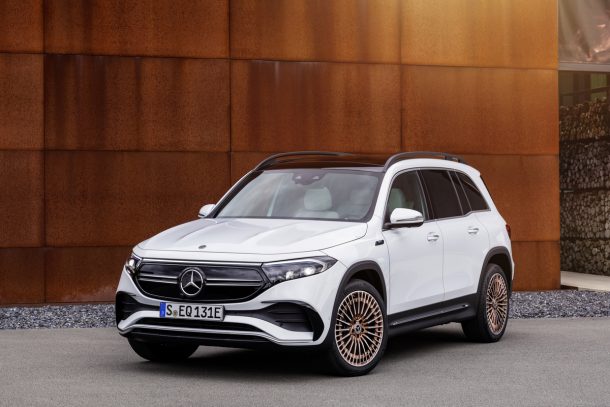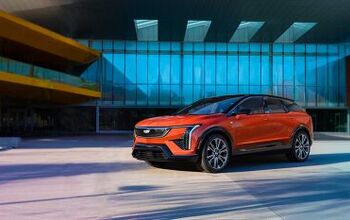California PHEV Owners Return to Gas Power
Electric vehicles are one way to carbon neutrality. Yet 20 percent of California PHEV owners have gone back to gas-powered vehicles.
Published in Nature Energy on April 26th by the Institute of Transportation Studies at the University of California, Davis, the study found that PHEV buyers in California were abandoning the technology at a rate of 20 percent, as were 18 percent of battery electric vehicle (BEV) owners.
According to the researchers, dissatisfaction with charging convenience, and not having level two, 240-volt charging at home, were the primary reasons.
The National Center for Sustainable Transportation (NCST) funded the analysis. The US Department of Transportation supported the University Transportation Centers program. The California Air Resources Board (CARB) paid for the questionnaire portion. They are one and the same agency that sniffs tailpipes for excess emissions.
Researchers Scott Hardman and Gil Tal had a premise: In order for EVs to be successful, it meant buyers needed to repurchase EVs. Abandoning the technology would prevent EVs from reaching 100 percent market share. They methodically surveyed California households who had purchased PEVs between 2012=2018. EVs’ success relied on adopters continuing to purchase EVs. 18 percent of EV owners and 20 percent of PHEVs were dissatisfied enough to return to gas-powered vehicles.
As noted by cnet.com, the problem centers around at-home charging. Level 2, 240-volt charging, or a lack thereof, is what led to discontent. Without the ability to recharge your EV at home, all the benefits of EV ownership go out the window. The lack of fast public chargers is a problem. Chargers that aren’t fast enough in comparison to refueling your car also diminished the EV experience.
Half the owners who bought another EV had Level 2 charging access, yet 30 percent who had access to Level 2 charging still decided against buying another EV. Their conclusion? It was pretty much even whether California PHEV owners decided to buy another EV or not. As the technology improves and charging installation is bundled with the purchase of an EV, it should help the green movement grow.
[Image: Mercedes-Benz]
With a father who owned a dealership, I literally grew up in the business. After college, I worked for GM, Nissan and Mazda, writing articles for automotive enthusiast magazines as a side gig. I discovered you could make a living selling ad space at Four Wheeler magazine, before I moved on to selling TV for the National Hot Rod Association. After that, I started Roadhouse, a marketing, advertising and PR firm dedicated to the automotive, outdoor/apparel, and entertainment industries. Through the years, I continued writing, shooting, and editing. It keep things interesting.
More by Jason R. Sakurai
Latest Car Reviews
Read moreLatest Product Reviews
Read moreRecent Comments
- Varezhka The biggest underlying issue of Mitsubishi Motors was that for most of its history the commercial vehicles division was where all the profit was being made, subsidizing the passenger vehicle division losses. Just like Isuzu.And because it was a runt of a giant conglomerate who mainly operated B2G and B2B, it never got the attention it needed to really succeed. So when Daimler came in early 2000s and took away the money making Mitsubishi-Fuso commercial division, it was screwed.Right now it's living off of its legacy user base in SE Asia, while its new parent Nissan is sucking away at its remaining engineering expertise in EV and kei cars. I'd love to see the upcoming US market Delica, so crossing fingers they will last that long.
- ToolGuy A deep-dive of the TTAC Podcast Archives gleans some valuable insight here.
- Tassos I heard the same clueless, bigoted BULLSHEET about the Chinese brands, 40 years ago about the Japanese Brands, and more recently about the Koreans.If the Japanese and the Koreans have succeeded in the US market, at the expense of losers such as Fiat, Alfa, Peugeot, and the Domestics,there is ZERO DOUBT in my mind, that if the Chinese want to succeed here, THEY WILL. No matter what one or two bigots do about it.PS try to distinguish between the hard working CHINESE PEOPLE and their GOVERNMENT once in your miserable lives.
- 28-Cars-Later I guess Santa showed up with bales of cash for Mitsu this past Christmas.
- Lou_BC I was looking at an extended warranty for my truck. The F&I guy was trying to sell me on the idea by telling me how his wife's Cadillac had 2 infotainment failures costing $4,600 dollars each and how it was very common in all of their products. These idiots can't build a reliable vehicle and they want me to trust them with the vehicle "taking over" for me.


































Comments
Join the conversation
I bought one just to get on the carpool lane for free, and now that deal is over I am no longer going to buy an EV / plug in. If the price is right I might consider in the future but at the moment I like my gas car better.
I have a PHEV, and my next car is going to be a gasser, because I want to do some track driving. But, I'm certainly an edge case. I may keep the PHEV to use as an additional car, because it's been such a good car and I won't get that much money for it. If I didn't want to drive on the track, I'm not sure what I'd get. EVing around town is so much nicer than driving a gasoline powered car, it would be hard to give that up, but I don't see an EV that I'd really like. Since what I have has been so reliable and cheap to run, I'd probably just keep it for a few years and see if something else I really liked came along.